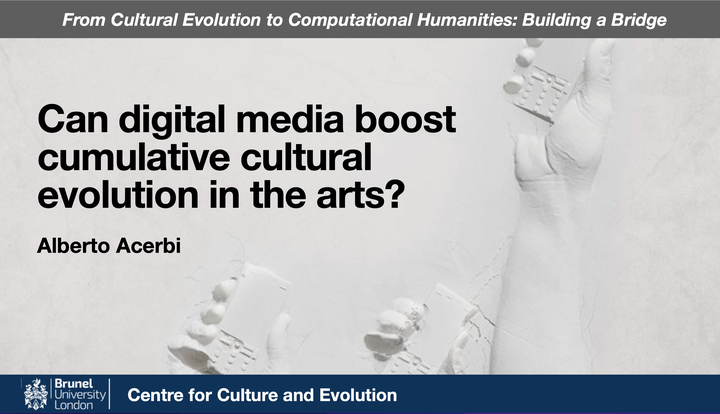Can digital media boost cumulative cultural evolution in the arts?

Abstract
Cultural evolutionists indicate, with the term cumulative cultural evolution, the process by which cultural traits become more efficient, or complex, through iterated episodes of transmission that retain past innovations. Cumulative cultural evolution seems to vary across domains, with domains such as technology or science showing clear indications of cumulation, and others, such as the arts, less. How can we explain this variability? Perhaps, different domains posses the features that enable cumulative cultural evolution to a different degree. Two of these features are availability, i.e., the possibility of accessing many examples from which to copy from, and fidelity of transmission, i.e., the cultural domain allows for reliable transmission that accurately preserves previous innovations - especially the improbable ones. One can argue that the diffusion of digital, online, media is increasing availability and fidelity of transmission in domains where they were limited before. On one side, digital media enormously expand the potential network for cultural transmission. On the other side, they come together with several fidelity amplifiers, such as implementing cheap and fast high-fidelity replication, or providing tools, like videos or comments, especially useful for the faithful transmission of tacit knowledge. In my talk, I will discuss this scenario, focusing especially on the possibility that digital media could improve cumulative cultural evolution in literature, a domain where it is (or it was) limited. I will present some results from a work-in-progress analysing Harry Potter fan fiction, where we were able to identify accumulation of themes and improvement in efficiency (as measured by readers’ ratings), two signatures of cumulative cultural evolution.